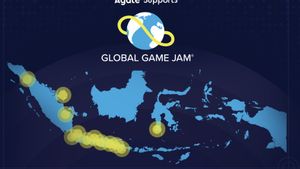JAKARTA - A study published by the democracy advocacy group Freedom House found that at least 24 different countries, including the United States (US) enacted new laws or regulations that dictate how social media platforms can control content.
Washington DC-based Freedom House reports that global internet freedom has declined for the 11th year in a row. They also found that at least 48 countries implemented new rules for technology companies on content, data and competition in 2020.
While as many as 24 countries made new rules specifically on how content is controlled in cyberspace. The rules include requirements to remove illegal content, stronger transparency and extremes such as political and journalistic censorship,
According to Freedom House, the trend can be linked to problems in society such as extremism, exploitative business practices and criminal activity. There are also some positive exceptions to the worldwide push that governs big tech companies, such as exposing malicious online harassment and manipulative market practices.
"While some of the measures introduced this year have the potential to hold tech giants more accountable for their performance, most are simply imposing state and even political responsibility on private companies without securing greater rights for users," the Freedom House study said. Insiders, Monday, September 27.
One of them is India, where last year, officials in the country pressured Twitter to remove comments related to the protests and stop flagging manipulated content shared by the ruling party.
Then in Nigeria, authorities blocked access to Twitter across the country after the social media platform removed an inflammatory post by the country's president.
In Texas, Governor Greg Abbott signed legislation to stop social media companies like Facebook and Twitter from censoring users based on their politics and to allow Texas citizens and attorneys general to sue tech companies they believe have unfairly kicked someone off the platform.
At this time, Twitter does not screen content or remove potentially offensive content, in accordance with company policies. However, targeted abuse or harassment may violate Twitter rules.
Facebook in a white paper released by the company last year said regulators wanted to establish legal standards for content moderation. Earlier this month, a meeting of Facebook leaders focused on whether Facebook was getting too big. However, the world's largest social network Facebook, with nearly 3 billion users, disagrees with the report.
The English, Chinese, Japanese, Arabic, and French versions are automatically generated by the AI. So there may still be inaccuracies in translating, please always see Indonesian as our main language. (system supported by DigitalSiber.id)













